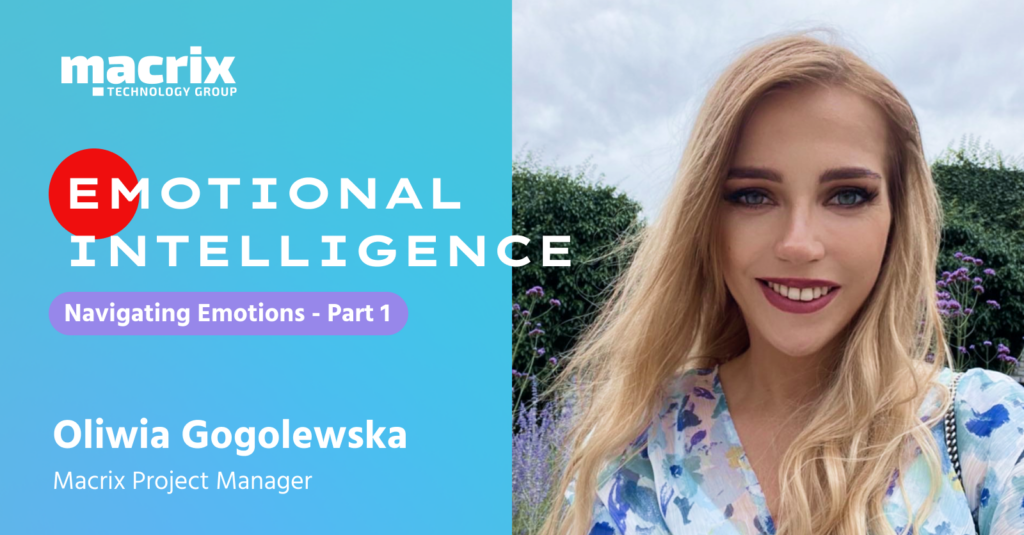
Daniel Goleman’s book, “Emotional Intelligence” boldly declares, “Success in life depends not only on intellect but on the ability to manage emotions.”
This declaration begs the question: Why is emotional intelligence so important? Within the pages of this article, we will take a closer look at emotional intelligence, illuminating specific examples that highlight its importance.
We’ll also explore practical methods that can help everyone boost their emotional intelligence and thrive in roles as managers, leaders, and team members, but also as parents, spouses, or colleagues. To make our journey together smoother, I’ve divided this article into four parts. This first part will discuss emotional intelligence in general and the emotions at its core. So, let’s start this exploration together.
In the last century, we’ve witnessed a significant shift in the way we lead and manage. People have evolved from being perceived as mere parts of a machine to being celebrated as the life force of every organization. This evolution is reflected in the transformation of management styles over time. In the early 20th century, management was often characterized by a command-and-control approach, where leaders exercised authority without much consideration for the well-being of their employees. As time marched on, a notable shift unfolded. The human relations movement stepped into the spotlight, acknowledging the psychological needs of employees and underlining the importance of a satisfied workforce for overall success. This laid the foundation for the people-centric and emotionally intelligent approaches that define today’s workplace.
It is worth to notice, that this transformation has evolved in sync with the rise of Emotional Intelligence, a relatively recent yet influential concept. Unlike the long-standing reign of IQ, EQ and its associated skills have been gaining recognition over the past thirty years. Much of this recognition is owed to Daniel Goleman’s book published in 1995. It not only introduced the concept to a broader audience but also provided a solid foundation for understanding and applying emotional intelligence in various real-life situations.

Ever wondered what sets emotionally intelligent individuals apart? According to Daniel Goleman, the pioneer of Emotional Intelligence (EQ), it’s the capacity to recognize your own emotions and those of others. EQ empowers us to motivate ourselves and navigate emotions skillfully in our relationships.
So, how can you identify someone with remarkable emotional intelligence? Goleman’s EQ theory consists of five key elements: self-awareness, self-regulation, self-motivation, empathy, and social skills. Cultivate these qualities, and you unleash your potential for greater effectiveness, both professionally and personally.
Those with high EQ? They handle stress with ease, are stellar communicators, overflowing with empathy, and tackle challenges like pros. What’s more, they have a knack for understanding how their own mental state influences the emotions of those around them. The exciting part? Emotional Intelligence isn’t a fixed trait! It’s a skill you can nurture and develop, not just something you’re born with.

Have you ever observed how your emotions can push you into action before your rational mind even gets a word in? This is because an emotional mind is much faster than the rational mind and it acts without pause for thought. Once the emotional storm settles, or maybe even during the action, you might catch yourself thinking, “What have I done?” That’s when the rational mind awakes. It’s an age-old dance between our emotional and rational selves. How often have you found yourself caught in this tango of the mind?
Picture this: way back in evolution, being quick was a survival must-have. Imagine focusing on another creature and suddenly facing a dilemma: “Do I eat this, or does it eat me?” Those who hesitated had a slim chance of a big family or passing on their genes.
Now, think of your emotions like a built-in warning system, always alerting you to potential danger. The catch? Waiting for your logical side to catch up in making decisions might cost you, maybe even your life. Nowadays, these quick feelings and snap decisions can be off or too speedy, considering we feel the emotion before deciding in the blink of an eye.
American Psychological Association defines emotion as conscious mental reactions (such as anger or fear) subjectively experienced as strong feelings usually directed toward a specific object and typically accompanied by physiological and behavioural changes in the body.
When exploring the world of emotions, it’s worth to highlight Paul Ekman, a renowned psychologist known for his groundbreaking research on emotions, facial expressions, and nonverbal communication. To understand emotions better, let’s check out his widely accepted theory, which groups them into six fundamental categories along with their expressions:
This list is certainly not exhaustive, but it groups the emotions that we often access on a daily basis. The definition of emotion that I personally like to use and one that I feel resonates with this article really well is as follows:
Emotion is the information from our body about our personal reactions to people, objects and/or situations.
I believe that when we start viewing emotions as signals about our personal responses it’s like having a compass that helps us in two ways: 1) gaining self-awareness and learning about ourselves 2) handling our emotions better.

Emotions shape everything we do, from our actions to our thoughts. For this very reason, I initiated this series on emotional intelligence, beginning with an exploration of emotions – because they genuinely matter. Understanding how emotions weave into our daily lives is like unlocking the door to self-discovery. In the next part, we’re going deeper, exploring three key things: self-awareness self-management, and self-motivation. We’ll share real examples and practical tips to help you master these inner skills and apply them in your life. Stick around as we gear up to dive into the heart of emotional intelligence, peeling back layers and arming ourselves with tools for personal growth. Stay tuned for the next chapter – it’s just around the corner!
Oliwia Gogolewska
Macrix Project Manager
References:
Goleman, D. (2005). “Emotional Intelligence.”
American Psychological Association. (n.d.). Emotions.
Goleman, D. (2004, January). What Makes a Leader. Harvard Business Review
These constructs are useful when you have more complex synchronization requirements.

